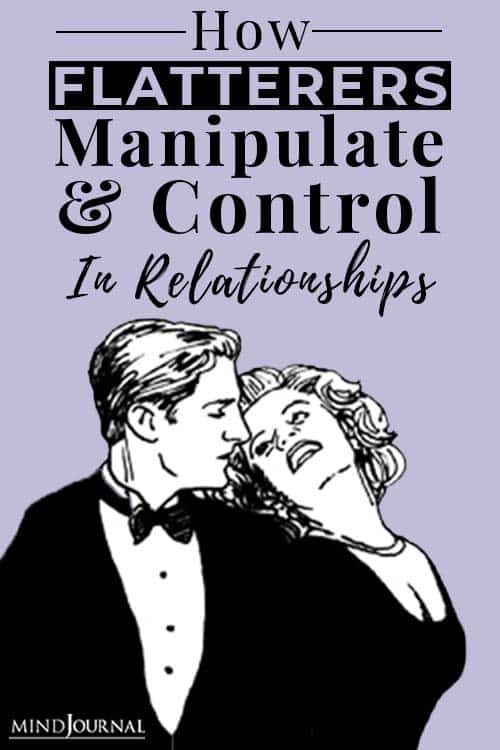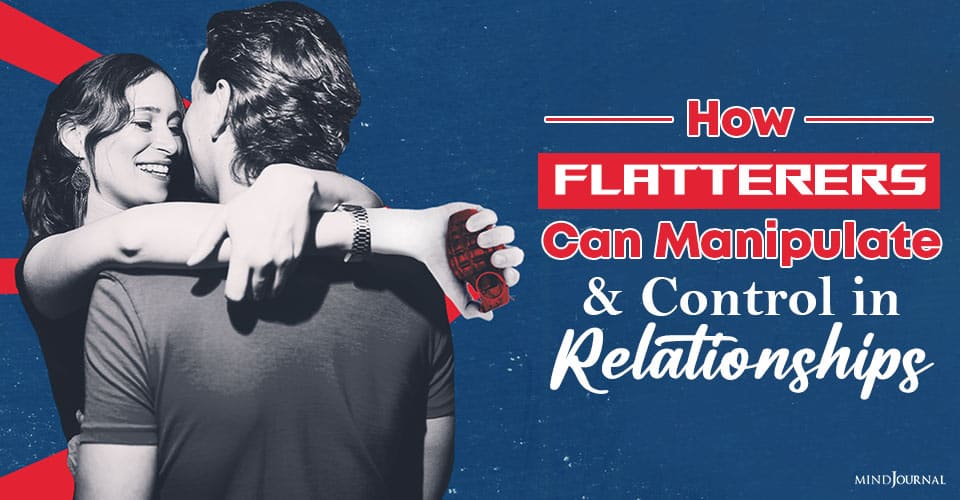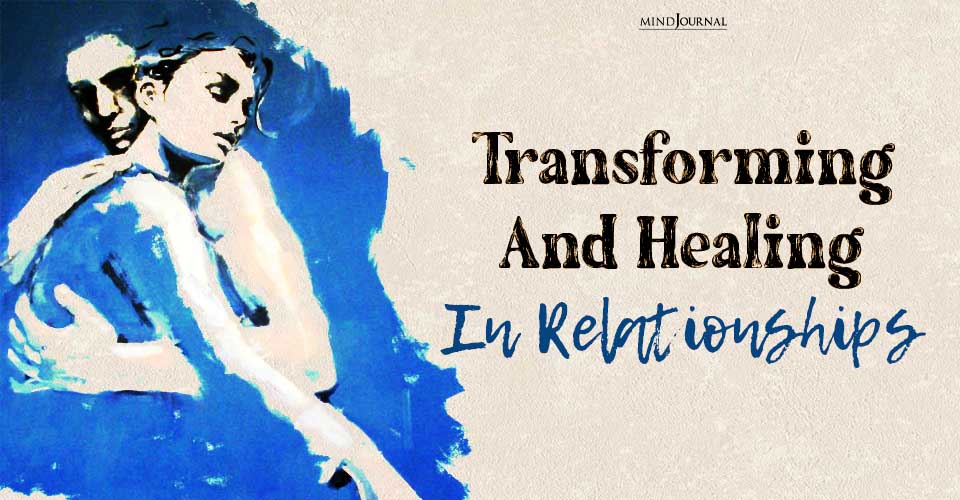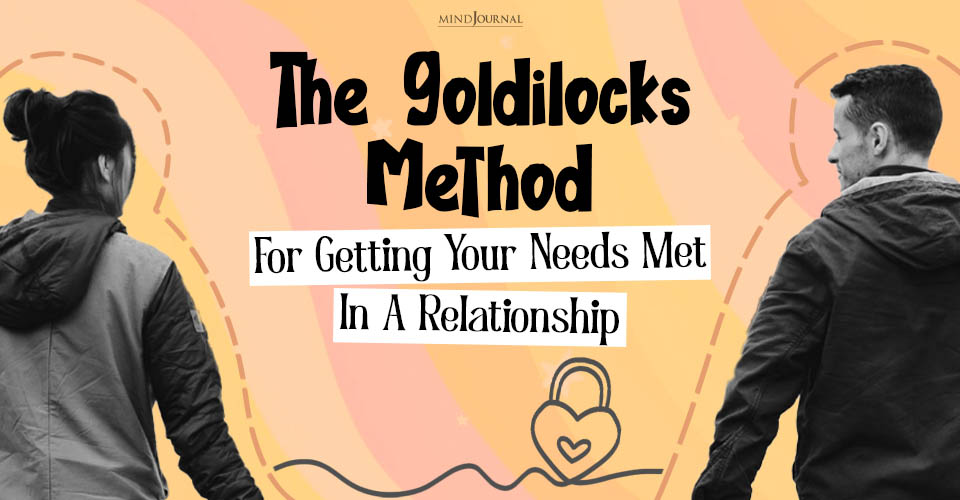When it comes to relationships, how do you know if the flattery is sincere? Sometimes those false flattering words, are actually some hidden agendas veiled in the fawning. Although fake praise may seem harmless and as much as we like to hear those words, those aren’t real. It can weaken love and be used to abuse. Read on to know about flattery and how flatterers can manipulate and control relationships.
Oh, love’s best habit is in seeming trust,
…Therefore I lie with her and she with me,
And in our faults by lies we flattered be.
— “When my love swears that she is made of truth,” Shakespeare.
Flattery is a type of white lie, but why would it be a problem?

Doesn’t everyone like to be told good things about themselves? Sure, but false praise is not the same as a thoughtful, honest compliment. Often, people see through flimsy flattery. For instance, students who apply to our graduate programs have professors write recommendation letters.
One professor has sent many letters, but frequently says he is recommending the “best student he has ever worked with.” When everyone is “the best,” the recommendation doesn’t mean as much. When every performance gets a standing ovation, it doesn’t reflect the quality of the show.
Read How Each Zodiac Sign Secretly Manipulates You
Flattery can also be dangerous.
A client of mine, whom I will call Joanna, learned firsthand about the power of a manipulative flatterer. In middle school, she was teased by friends for being an early bloomer, and this left her anxious and insecure. When she began her freshman year at college, she met Brad, who sensed her vulnerability. He began calling her relentlessly, texting her about how he couldn’t stop thinking about her eyes or her voice.
She was blown away. She felt deeply desired, and this was intoxicating. He pressured her for sex, even though she told him she wanted to wait. She eventually gave in and kept this from her friends, who were becoming concerned, and her mother, whom she knew would disapprove of the whole relationship.
Things moved quickly, and Brad continued the flattery, but also became jealous, asking her to stop hanging out with friends and wearing certain clothes. She found out he had a son from a previous relationship, but he had excuses for why he hadn’t been honest with her, and he dodged the issue by complaining about how awful his ex was.
Read How Our Brains Can Be Manipulated, Even in the Face of Facts
He convinced Joanna she was the only person who understood him. Things turned abusive, as he would make fun of her looks and take her phone as punishment. She was entrapped by this point and would believe him and blame herself for their problems.
He would hit her, then buy her gifts, promise to change, and threaten suicide. He used flattery like many manipulators do — to gain control in relationships. As is often the case, the kindness mostly stopped after Joanna was too beaten down to leave.
Another clinical experience with flattery involved a fresh-off-the-farm kid named Roy. He was 18 and had left his rural home to take a job in a distant city. A single mother co-worker took an interest in him, and would drop by his cubicle, smile, flirt, and invite him to lunch.
He felt funny about it and made some weak efforts to push back, but it was fun, so he often went along. She soon pressured him to spend time at her house and talk about marriage.
He was distressed and confused, because he had a long-distance girlfriend, and his requests were being disregarded. When we discussed her use of flattery, he protested: “Are you saying I am not a good-looking guy or nice? I like to be appreciated!” But as we looked closer, he saw that the truth was a bit more complicated.
He was a nice, good-looking guy. However, the lie was in why she was telling him these things. It wasn’t because she genuinely thought about his happiness and fulfillment. She was flattering him for her purposes: He came from a ranching family with money, and she liked the thrill of leading him along. If she really had his best interests at heart, she would have accepted his initial protests and stepped back instead of pushing.
Flattery is dishonest when used to gain or control in relationships.
It is effective because everyone has insecurities and loves to be told great things about themselves. Flattery is particularly common during dating and in new relationships but usually wears off as relationships settle into commitment and reality. Established couples are kind and supportive, but have usually dropped the fawning.
Read How A Fuckboy Manipulates You Into Falling For Them
Flattery can be like an artificial sweetener that seems great at first but leaves an unpleasant aftertaste. Someone starving for affection may eat up flattery, but it isn’t as nourishing as the sweetness that comes from honest compliments.
Be cautious in relationships where the truth seems elusive, and a partner is coming on strong with a rush of compliments and promises. Flattery is exciting, but it can lead to dangerous places in relationships.
References
Whiting, J. B. (2016). Love Me True: Overcoming the Surprising Ways We Deceive in Relationships. Cedar Fort.
Written By:Jason Whiting PhD. For consulting and workshops or treatment and supervision click here Originally Appeared On:Psychology Today Republished with permission











Leave a Reply